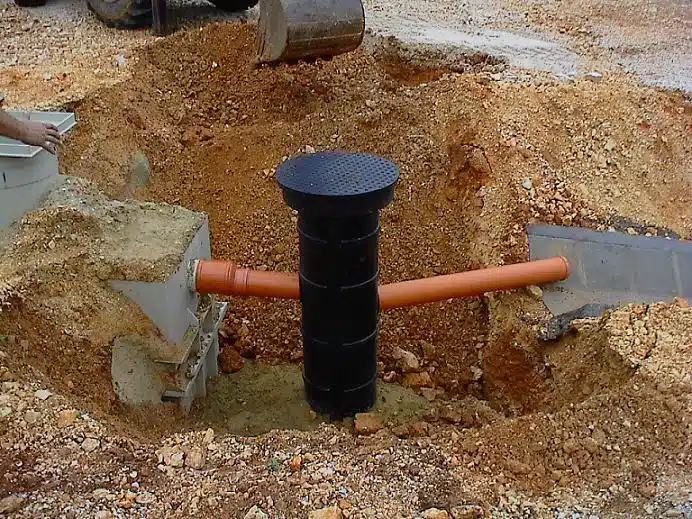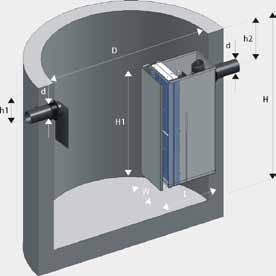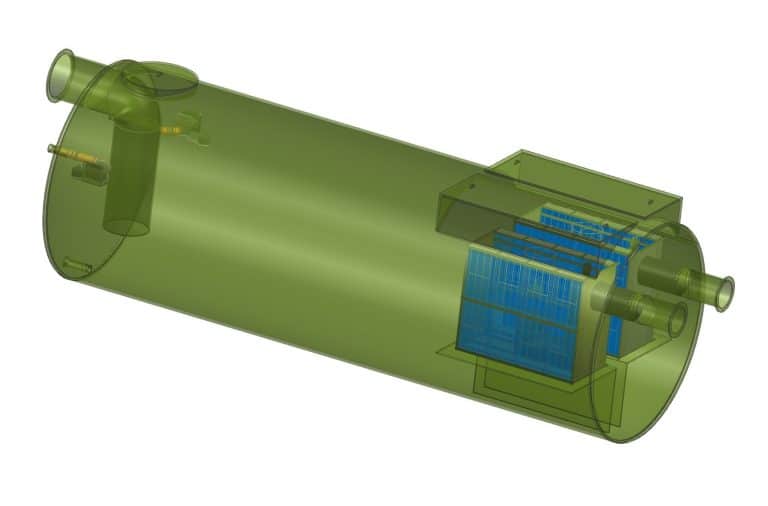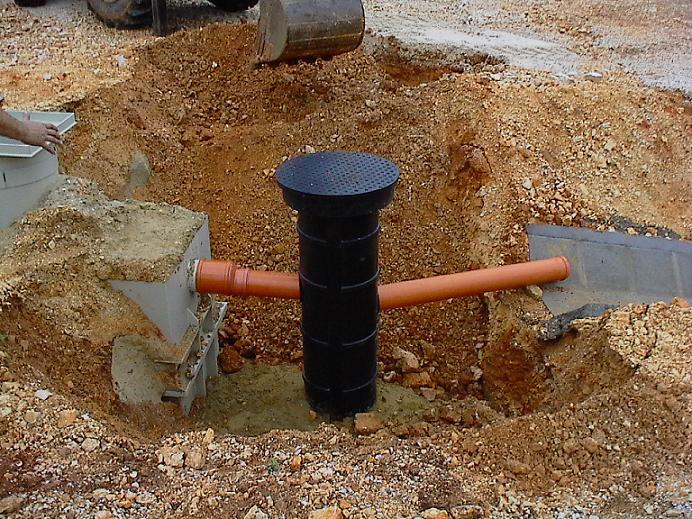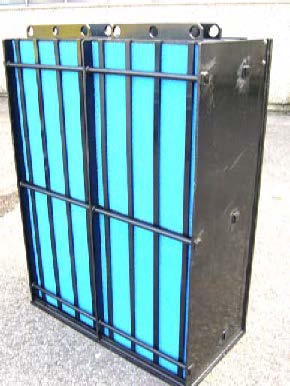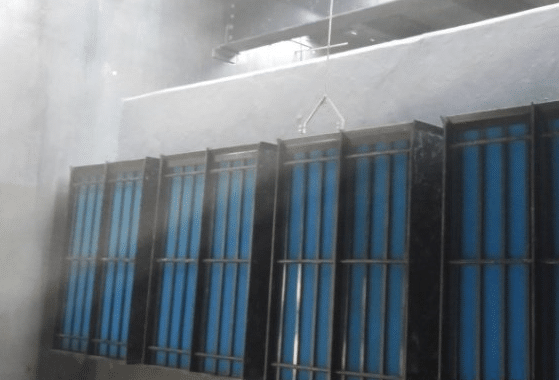Ever wondered how Pennsylvania keeps its water clean and safe, even with lots of industries and cities? The answer might be under your feet. Pennsylvania Below Ground OWS systems are key in managing groundwater and recharging aquifers. They act as silent protectors of our water.
Freytech Inc. is a leader in this important area, offering top-notch Pennsylvania Below Ground OWS solutions. These systems keep oil and water apart very well. Freytech’s tech is so good, it can remove 5 PPM of oil from water, beating North American standards. This means cleaner water and better protection for the environment.
Freytech’s advanced coalescing technology can handle many pollutants, like free oil and various fuels. This system can remove trace amounts of emulsified oil with a 0.1 PPM efficiency. It’s a new high in the industry.
Key Takeaways
- Pennsylvania Below Ground OWS systems are vital for water management
- Freytech Inc. offers high-efficiency OWS solutions
- Enhanced coalescing technology separates various oil types from water
- Freytech’s systems exceed North American discharge standards
- Underground water storage contributes to aquifer recharge
- OWS technology plays a crucial role in environmental protection
Introduction to Below Ground Oil Water Separators
Below Ground OWS are key in saving water and using it wisely. They take out oil, grease, and other petroleum stuff from wastewater before it goes into the environment.
Definition and Purpose
These devices sit underground and separate oil and water. They let oil rise to the top while keeping clean water flowing out. This stops pollution and keeps our water safe.
Environmental Protection
These separators are crucial for the environment. They keep bad stuff from getting into our water, which can hurt nature and animals. By using Below Ground OWS, companies can lessen their harm to the environment.
Pennsylvania Regulations
In Pennsylvania, there are tough rules for Below Ground OWS. The state’s Department of Environmental Protection makes sure of this. They check that businesses set up and keep these systems right to meet water quality standards. These rules help save water and use it wisely across the state.
Pennsylvania Below Ground OWS: Types and Applications
Below Ground Oil Water Separators are key in keeping Pennsylvania’s water safe. They come in different types for various needs. Cylindrical ones are great for underground setups, while rectangular ones fit in vaulted areas. Both use advanced technology to improve separation.
These separators are used in many fields. Wastewater plants use them to clean up before letting it go. Oil companies use them to separate oil from water when extracting it. They also help prevent spills in secondary containment areas and help recycle oil from waste.
Choosing the right separator means knowing about underground water flow and soil types. Pennsylvania’s varied land needs careful thought for the best separator use. This ensures they work well underground.
The type of separator used affects its rules and checks. In Pennsylvania, environmental groups watch these systems to keep the water clean. By picking the right separator for each job, industries help keep Pennsylvania’s water safe.
Design and Construction of Underground OWS Systems
Underground oil water separators (OWS) are key in keeping our environment safe. They need to be designed and built with care. This ensures they can handle oil-contaminated water well. It also helps us adapt to climate change.
Material Considerations
OWS systems are made from materials like steel or fiberglass. Steel is strong and durable, while fiberglass resists chemicals. The choice depends on the site and local laws.
Sizing and Capacity Requirements
Getting the size right is important for OWS systems to work well. Engineers figure out the capacity by looking at flow rates and oil amounts. If a system is too big or too small, it can cause problems.
Choosing the right size helps the system work as it should and follow the rules. This is key for good performance and safety.
Installation Procedures
Installing OWS systems requires careful work. The steps include digging, putting in the tank, and connecting it to pipes. It’s important to fill in the area well and pack it down. This stops the system from moving or getting damaged.
Experts make sure it’s installed right. This keeps the system working well and protects the environment.
By paying attention to design and building, underground OWS systems help us fight climate change and protect the environment. They help businesses follow the law and reduce their impact on nature.
Performance Standards and Efficiency Ratings
Oil water separators are key to saving water and using it wisely. They must work well to keep oil and water apart. Companies like Highland Tank make sure their separators meet these high standards.
Highland Tank’s separators can get water clean with less than 10 parts per million (PPM) of oil. This is better than what the EPA requires. For those wanting even cleaner water, Freytech Inc. has separators that go further.
Freytech’s separators can remove up to 5 PPM of oil, and some can even get down to 0.1 PPM for very small amounts of oil. This helps save water by making sure it’s almost oil-free.
These standards are vital for companies to follow the law and use water wisely. By picking oil water separators with top efficiency, companies can lessen their environmental harm. This helps everyone work towards saving more water.
Maintenance and Inspection of Below Ground OWS
Keeping below ground oil water separators in good shape is key for managing groundwater and protecting the environment. Regular checks and fixing problems on time make sure these systems work well. This helps keep our water safe.
Regular Maintenance Procedures
Important maintenance tasks include taking out sludge, cleaning filters, and looking for wear and tear. Operators should plan these tasks based on how much they use the system and the maker’s advice. Doing this stops big problems and keeps the system running smoothly.
Inspection Protocols
Checking these systems carefully is important for the environment. Operators do visual checks, and official groups also inspect them. The Pennsylvania Department of Environmental Protection (DEP) keeps a close eye on them. They’ve logged over 1,600 inspections in just two weeks.
Troubleshooting Common Issues
Spotting and fixing problems quickly is crucial for managing groundwater well. Issues like leaks, wrong flow rates, and less separation can happen. Operators need to be able to find these problems early and fix them fast. Watching the quality of the effluent helps spot issues before they get worse.
Environmental Benefits of Below Ground OWS in Pennsylvania
Below ground oil water separators (OWS) are key to protecting Pennsylvania’s environment. They stop oil and pollutants from getting into waterways and groundwater. This helps save water across the state.
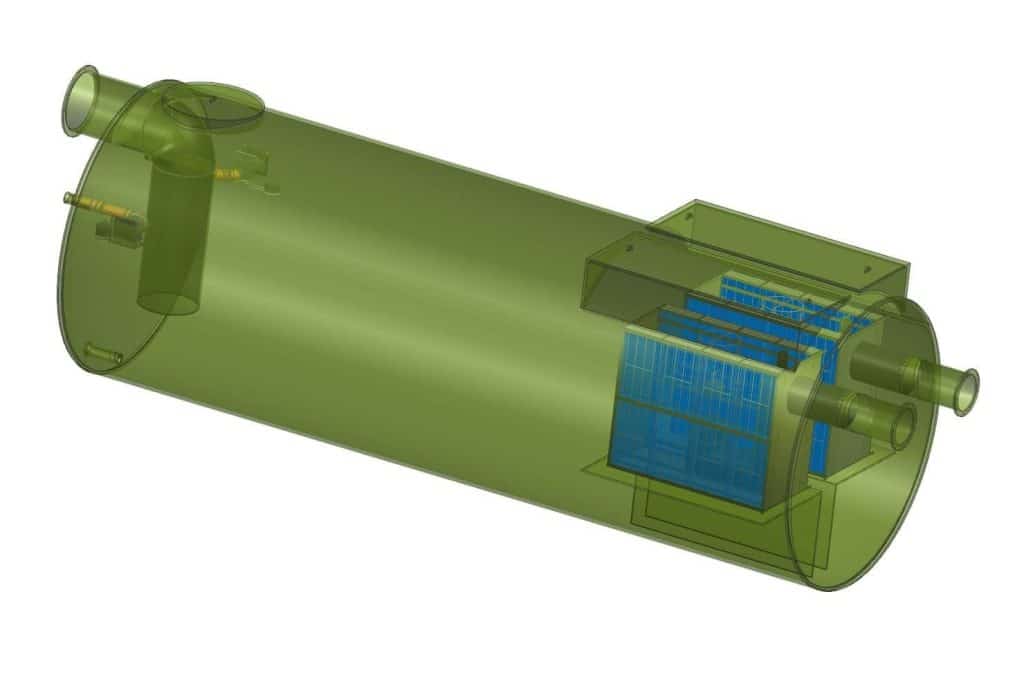
OWS help facilities deal with climate change by better managing water. They let treated water be used in industrial processes, which cuts down on freshwater use. This supports Pennsylvania’s efforts to be more environmentally friendly.
Using below ground OWS helps meet Pennsylvania’s environmental goals. They keep oil pollution out of water, protecting aquatic life and keeping water safe for people. This is vital as the state deals with the effects of climate change.
Companies that use below ground OWS show they care about the environment. These systems make sure they follow state laws and help with saving water. As Pennsylvania focuses on being more sustainable, OWS play a big part in keeping our water clean and plentiful.
Compliance with Pennsylvania Regulations and Standards
In Pennsylvania, rules for underground oil water separators are key to keeping water safe and protecting aquifers. Operators must follow strict rules to keep the environment safe and avoid legal trouble.
SPCC Rule Applicability
The Spill Prevention, Control, and Countermeasure (SPCC) rule covers most OWS systems. But, some wastewater treatment uses get special rules. Operators should check their situation to see if they need to follow SPCC rules.
DEP Inspection and Enforcement
The Department of Environmental Protection (DEP) checks OWS facilities often. They gave out 507 conventional and 119 unconventional Notices of Violation recently. These checks help keep water safe and protect aquifers.
Reporting Requirements
OWS operators must send in yearly reports on production, waste, and well condition. It’s important to report accurately and on time to stay in line with the law. Not doing so can lead to fines and harm efforts to keep water safe and recharge aquifers.
These separators are crucial in storm water systems. They process runoff to meet the US EPA’s Clean Water Act standards. With effective oily water treatment, facilities protect the environment and dodge big fines.
Conclusion
Pennsylvania Below Ground OWS systems are key to protecting our environment. They work hard to keep oil and water apart in many industries. This helps keep our waterways clean and safe.
Using these systems isn’t just good practice – it’s the law. Pennsylvania has strict rules for designing, installing, and maintaining OWS units. Following these rules ensures the systems work well and last long.
When businesses use Pennsylvania Below Ground OWS correctly, they’re not just following the law. They’re also helping to create a cleaner, greener state. This push for environmental sustainability is good for everyone. It means cleaner water, healthier ecosystems, and a brighter future for Pennsylvania.


